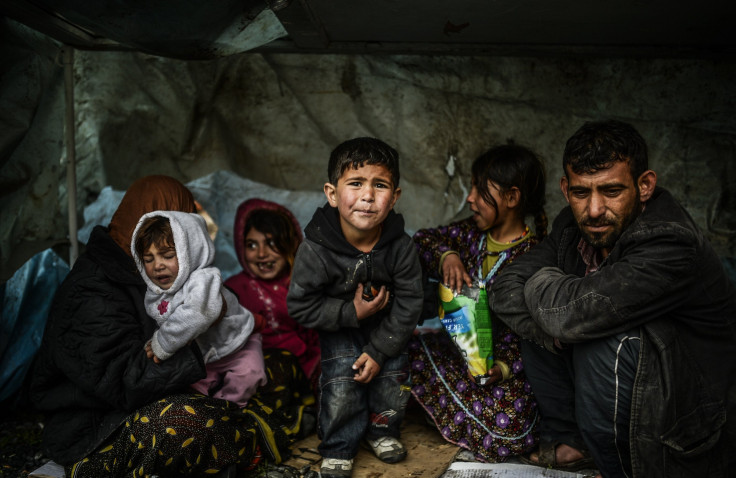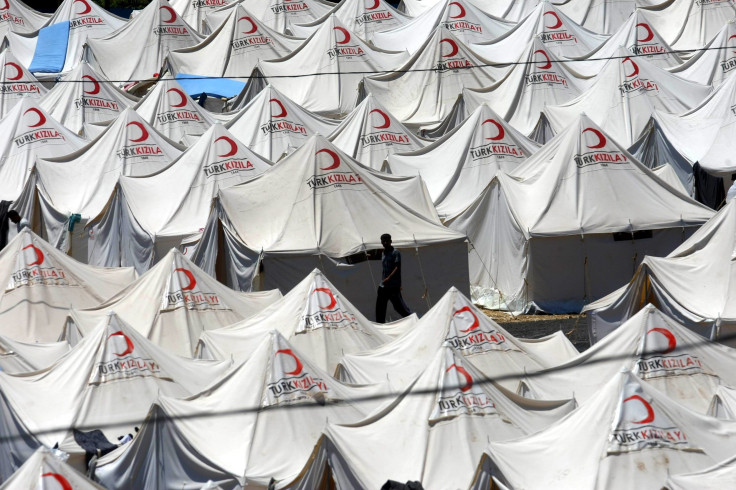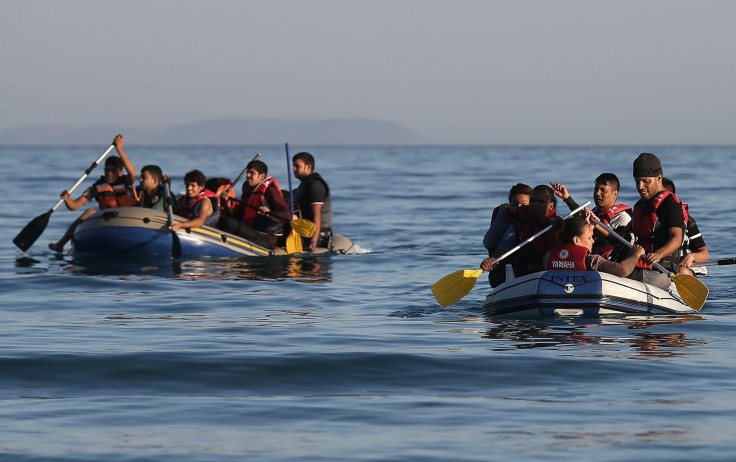Syrian Refugees In Turkey Face Exploitation, Despair As War Lingers At Home

Arian Mert carried some luggage with him, said goodbye to his family and set out for Istanbul, a city he knew little about. His hometown in Syria’s Aleppo province no longer felt safe two years after a popular uprising spiraled into a devastating civil war, and he saw the same bleak future all around his homeland.
Now two years on, Mert, who changed his name after moving to Turkey, is ready to uproot his life again. With conditions growing more desperate for refugees in Turkey, Mert said he hoped to follow in the footsteps of thousands of other Syrians who have made the arduous journey to Europe in recent months.
“We are just hating the situation, and we are just shocked at the reality that is here in Turkey,” Mert, 22, who works for a low wage at a restaurant, said. “I don’t care about where I go. The most important [thing] to me is to go to a place [where they treat you like a human being].”
Turkey has struggled in recent years to integrate a massive refugee population that, by just about any forecast, has little chance of returning home soon. Around 2 million Syrians currently live in Turkey, and while the country has made strides to accommodate refugees, many Syrians have reported an increasingly difficult life stained by rampant exploitation and bureaucratic restrictions. Their tough adjustment to Turkish society has sent hundreds of thousands of Syrians in pursuit of better lives in Europe in recent months, triggering an international crisis that has put a spotlight on refugee needs and living conditions.
“People are just basically surviving,” Andrew Gardner, a Turkey-based researcher for Amnesty International, said. “Their kids aren’t going to school, they’re working very temporary and exploitive jobs, and they’re living in housing which is barely suitable, or not suitable, for human habitation.”
When refugees first started to cross Turkey’s border in 2011, there wasn’t much of a long-term plan. Turkey initially expected just a few tens of thousands of refugees and set up some of the most well-equipped refugee camps ever built. The Turkish government called early on for the removal of Syrian President Bashar Assad and hoped refugees would be able to return to their homes shortly -- offering them only a tenuous legal status as “guests” in the country.

Four years later, more than 100,000 Syrians have been born in Turkey, and over 60 percent have chosen to settle outside of the camps. Many streets and neighborhoods in Turkish cities now teem with Syrian shops, restaurants and beggars. Speculation that the war might end soon has kept some Syrians, hopeful of returning home, close to the border in southern Turkey. Others have spread to cities throughout Turkey, as the costs and risks associated with crossing the Mediterranean are high. Being smuggled by boat to Europe can cost around $2,500, a price many refugees working on low salary cannot afford, Mert told International Business Times.
Turkey has made strides to accommodate refugees' needs, spending some $7 billion in recent years on health and educational services. But analysts warn that Turkey has reached its tipping point. Aside from the refugee issue, the country has seen considerable domestic political turmoil; a decadeslong war has reignited with Kurdish guerrillas in the country's restive southeast, and the Lira has hit a new historic low against the dollar.
The financial impact of the refugee influx has been mixed, but political opponents, namely with nationalist parties, have sought to capitalize on unease over the massive influx of Syrians in the hope of stealing votes from the ruling AK Party during the snap elections in November. Elections have many refugees worried, as some political parties have not been as welcoming toward refugees as the AKP.
As Syrians have become a political liability for the government, a long-planned initiative to issue work permits has been shelved, forcing Syrians to continue working illegally in exploitative conditions without legal recourse. Turkey has also recently closed its border crossings with Syria, leaving desperate refugees little choice but to slip through the border, often via smugglers. And the Turkish government has also begun to enforce a ban on travel to cities not specified on Syrian registration documents.
“I felt like I was hit in the gut when I read this,” Aboud Dandachi, a Syrian living in Istanbul, said. “If they can come up with these kinds of restrictions, what other restrictions are they going to come up with?”
When Dandachi first traveled to Turkey, the country offered what he needed: a place to live free of fear or harassment. But as the conflict has lingered on and chances of returning home anytime soon have faded, he has grown increasingly pessimistic about his future in Turkey, especially as some politicians have rallied their supporters against refugees.
“I’m grateful for what Turkey has done for us, but I cannot stay in a limbo all my life,” Dandachi, who has published a book on the Syrian crisis, said. “If I could get on a plane to Germany right now, I would. That’s not to disparage Turkey, but Turkey’s taken 2 million of us, and fatigue is starting to set in.”

While some European countries have met refugees with animosity, and countries like Germany have offered to take in hundreds of thousands of refugees but have placed them in centers for processing, many believe their long-term prospects in Europe are better. Abdullah Bakerli, 22, is among the sliver of refugees in Turkey who disagree. Almost as soon as he settled in the country in 2012, he began to learn the local language and started mixing with Turks.
“For me, the key is Turkish,” he said in a tip of advice to other Syrians. “If you don’t speak Turkish, and if you don’t speak English, you will have a very bad experience in Turkey -- you won’t enjoy it, you won’t be able to live in that country.”
Bakerli studies business administration at a Turkish university and is part of the Syrian Youth Forum, which offers educational, social and professional services aimed at helping Syrians settle in Turkey. He said much of the animosity that has formed between Syrians and Turks lately can be attributed to poor media portrayals of refugees and inflammatory political language. In an effort to change negative impressions of refugees, Bakerli often brings Syrians along when meeting with Turkish friends. “When you meet Syrians in real life, face to face, you will know he’s not like the one you see on television,” Bakerli said.
Asked whether he thinks there might be future generations of integrated Syrians, Bakerli responded: “My little brother, he’s [been] just three years in Turkey, he speaks very well Turkish, he has a lot of Turkish friends … so he’s going to be a Syrian-Turkish, even if they don’t give him citizenship.”
“But I hope we all get back to Syria,” he added.
© Copyright IBTimes 2024. All rights reserved.






















